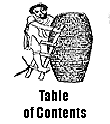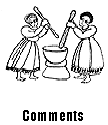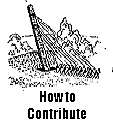
|
|
|
Generationsby: Yeshi MedhinShe pushed up from the chair, the one her granddaughter had bought especially for her. It sat high enough so that she didnt have to rely on her weak knees to help push her up, and it had arms and a cushioned seat so that she could sit in it for hours at a time, watching TV or TiT meftel or simply gazing out through the French doors at the splendor of nature in the garden beyond. She made her way slowly to the kitchen, opened the cupboard where she stashed bits of left over bread, mostly the ends the children would not eat, retrieved the tinfoil pan and went back to her chair to begin the shredding so she could feed her birds. And as if on schedule, the memories came wafting in, soft and sheer, like gossamer, until they flood her ninety year-old mind. Alone in her only granddaughters home, she is helpless to fight them off as they come marching in one by one, clear as day, clear as though they were happening to her once again. Ethiopia, 1936: I am eight. My mother is dying. Inside the main house, pandemonium has broken loose. There is talk of evil. Of witchcraft and the venom of snakes. I know what has happened. I know it like you know when you have done something wrong but somehow you think that denial will brush over it in white paint and make it like nothing again. What I didnt know could not know was what was about to happen. My lifemy world, as I knew it, was about to crumble away beneath the callous touch of fate and scatter, never to recover again. I am eight. My mother is dead. And inside my heart, grief is like a heavy stranger come to stay awhile. I remember her love as if it were real still. Here I am, ninety. A great grandmother. And I am longing for my mothers love again. It was her death, you could say, that gave birth to all my misery. But while she was here, while she was still mortal and with me, before the flock of black birds flew away with her after her funeral, I was a blessed little girl, swaddled in the gossamer grace of my mothers love. Her death punctuated the end of my childhood. The following year, nine, and still a child, I became some old mans bride. I remember him, too. Old enough to be my grandfather. Even he was stunned by my fathers decision. My father, the man who loved only two things my mother and hunting was ill-prepared to raise a daughter. Even less ready to face his dead wifes eyes, day in and day out. So, when he came back from his hunting excursion, one day, he told me I was to leave my home and go be some other mans worry and woe. He didnt say it like that, of course. Truth is rarely if ever spoken out loud. I didnt know what he meant. What it meant. To be married. I was a child, still, after all. Still I went. A retinue of slaves and their children, my only friends, my sense of home, followed me there. And followed me back when my husband of just a year died in his sleep one night. I never knew him as a husband. Bless him. Perhaps my mother was still there with me then. And still there in my face, I suppose. Because only a year later, Father gave me away again. To another man, another wedding, another extravagant trousseau. And I remember this husband, too. He was less discriminate with a child bride. Less discriminate, full stop. He brought to me his unwanted and foreign attentions and his foreign and unwanted diseases. My body was too young to fight him and his germs, and gratefully, I succumbed to illness rather than the touch of his hands. Sores covered my face and my body. My hair fell out. And I thought I was going to die, too. But I didnt. I wondered then, where my mother could have gone that I was so tormented then needlessly spared an easy avenue out. I dont regret living. No. Dont get me wrong. I regret only the vagaries of life. But the sour does make the sweet taste even better. Ive had my share of sweet. And more than my share of the sour. When I was better, and strong enough, I walked. All the way back to my fathers house. My hair gone, my eyebrows burned off by the scabs, and long curly eyelashes now a nostalgic memory, I no longer resembled the mother who had taken my fathers heart with her to the grave. So he let me stay. It was that simple. I wonder to this day, did he know what his grief had made me build my life on tears? He doesnt get down on one knee when he proposes to her on her birthday. Just hands her the tiny box like its a gift or something. They are standing outside a church, its mid-April and still chilly with the last breath of Winter whispering down through the undulating branches of the budding trees. She says yes. But she doesnt know why. Love has little if anything to do with it. Comfort? Maybe. Familiarity? More than likely. Hes tall. Hes dark. Hes handsome. What hes not is Ethiopian. But at this point, that matters little to her. She had weathered her Ethiopian-husband-or-no-one-at-all phase rather well, she thought, but biology being biology, and her mother being her motherwell the need to propagate had her on the clockand time was running out. So, at the bottom of all her modern reasons as to why she was saying yes was the unspoken but oh-so-true mikniyatum inatE yelij lij mayet tifeligalech. USA, 2000: She told us she was to be married like one might tell about a recent purchase they had made at the local mall: It was a really good sale, so I bought it. There was nothing remarkable about the delivery of the news except that it was so very unremarkable. Extra unspecial. Whatever happened to asking for her hand in marriage? Who was this boy she was to marry? That ferenj we had insisted she not bring to our home lest they were more serious than serious kenfer wodaj? Did she not have a thinking cell left in her brain? Are our tradition so anathema to her overly ferenj soul that she would flout them so carelessly? Where in hell is yemama shash!? We had yet to meet him, this white boy who was to marry my only daughter. We had yet to set eyes on him, or he on us. But that had been our choice. After years of the veritable ethnic smorgasbord of men wed been hugged and kissed by on their way in and out of her life, we were now to be slapped with the indignity of thisthisthis indignity! Well, at least she hadnt settled on that black American or the izlam boy. This one may not be Ethiopian, but hes at least Christian. And their children will be beautiful. What does he look like? Is he tall? Does he have good teeth? Does he have a good job? Good God, what do we know about this boy? wiy, ya shas yet Teffa? Arehqlebet aregachuh? Tiru nw. Says her mother, my daughter. Hamoteh-biss! Always overly kind. Overly nice. What my granddaughter needed just then was a swift qaria Tiffi to her senses to jump start them, certainly not an even less remarkable response to a monumentally unremarkable announcement. Times have changed. This is true. But, gracious, not so much that a young man can completely circumnavigate tradition and etiquette when he asks a woman, my granddaughter, no less, to marry his worthless self. I have nothing against ferenjoch. Thats Gods honest truth. Those who have done me or mine harm now they are a different story, of course. I have known them all my life, since before the Italian invasion when Ababa would bring ferensai businessmen home with him to show off his wife and home and riches. They would bring gifts of shito, which my mother would invariably memeTn with another favorite shito to get the scent she desired. She would dab some on my neck for me so we could smell the same. I remember doing exactly the same with my daughter. And her daughter when she came along. This same only-daughter-of-my-only-daughter-of-the-only-daughter-of-my-mother, who would grow up to tell us in this sinesiriate bis manner that she was to be married. And then, we would pretend nonchalance. This was like merdo, only worse because I was unlucky enough to be still alive to receive the news. Dont get me wrong. Im not ready to go. Not yet. Certainly not before I meet this ferenj boy who had so blinded my lij-lij that she was ready to throw away her only life. And my own daughter would respond, Arehqlebet aregachuh? Tiru nw. wiy, Iyesus!! simihin bekentu liTra? *** "Ma, taCHehuN. " "min"? "taCHehuN. Qelebet arekuN". "taCHesh? a-ai, Tiru nw". ImayE shashun aTahut?" "indaaaaaaay! Jesus, Mom, I'm telling you I got engaged." There's more hurt indignation than frustration in her voice. "You make my life hell pestering me everyday about getting married and here I tell you I'm getting married and you're more interested in a friggin' shash. Teffaa. Min largish. Chekulenal. Almaz, whom her new fianc‚ called Ally for short stared at her mother, her face flushed with color. Her hands clenched into fists at her side and her chest rose and fell rapidly as she tried to control her famous temper. What she wanted to do was scream. Loud and long and.LOUD!! Goddamit! What the hell was this about, anyway? She was engaged, for chrissakes. She was going to get MARRIED. She was, eventually, going to have CHILDREN. Isnt that what they wanted? Had she read all the wrong meanings between the lines of their incessant nagging? Imai, inghiday, aTahut, her mother said to her grandmother, her face, too, now red - from the exertion of the search for the shash, Almaz assumed. If I find the shash, can we acknowledge what I just announced to you, Mother? Finally, her mother looked her in the eyes. And there, behind the unmistakable moisture of unshed tears, was the slap of disappointment. Its funny, you want the best for your children, but its as though they fight you for the worst of what life has to offerjust to spite you. There is nothing I have done since the birth of my only daughter that was not in some way in an effort to benefit her. Even divorcing my feckless husband. I could have gone on being married to him, to save face, if for no other reason, but his drinking was worsening and his drunkards sense of discipline of our only set li was turning into abuse. I left and went to my mother because the alternative was untenable. The move to America, the jobs I obtained, the night school I attended to earn my Masters Degree in my forties, the homes I purchased and the neighborhoods I moved to, all were for her, only her. I was merely an indirect benefactor of her existence in my life. Even the reason my parents lived with me now instead of Ethiopia was because I thought it would be good for Almi to have grandparents around, especially to have some kind of male role-model in her life. They said it was important for children to have positive role-models in their lives. Even in this, I have tried not to fail her. And yet. Yet, here I stand, listening to her tell me that all of it was for naught. None of my sacrifices were worth the sinesirat of a personal request for her hand in marriage. And what was wrong with marrying Ethiopian, anyway? The constant parade of black, white, brown and even red and yellow through my homes over the past ten years I had assumed was a prolonged phase that would end with her married to a good Ethiopian man. You tell me, is that too much to ask for? After all Ive sacrificed? ------------------------- What the fuck was I doing? I was actually joining in the search for a goddamn shash. The patients have taken over the asylum! I felt like I was drowning in the insane rapids of the moment, securely weighed down by the lead ball weight of my engagement ring, which was still in my pocket for until after I announced my intent to marry. Well, that went well. Like a joke. And heres the punch line: I dont even want to get married yet. Id picked the first harmless guy to come along and ask me to marry him to say yes to. Ive never thought that love was a good reason to tie the knot over. Love blinded you, it made the world all pink and fuzzy until it went away in search of its next victim, leaving you behind in the harsh glaring lights of reality. Thanks, but no thanks. Ill marry for all the wrong reasons and retain my sanity and dignity. My mother had married for love. Mistake number one. She had married my father. Mistake number two. Then, before she could even think to make a quick getaway from a bad decision, she had had me. Mistake number three. The year after I graduated from college and I got my first proper job, my mother had began her song and dance about marriage and children. What was the big hurry? I thought. Why rush into something that was, by design, the death knell of happiness. I was young, I was healthy, and I was happy. Why ruin a good thing, I figured. Determined not to follow the mistake footprints of two generations of women who had married or been married off for all the wrong reasons, I settled into the pattern of a serial monogamist, content with the companionship the men I dated provided. And, much to my mothers chagrin, I did not discriminate. A good man was a good man, no matter what his ethnicity. Had she not married and divorced an Ethiopian man? I mean, was that supposed to be better than marrying and divorcing a non-Ethiopian man? Yes! She always responded. A thousand times, yes! Then at least your children would be Ethiopian. Ah, the children. My children. Truth be told, I didnt even want any. So, for a brief spate of time, I concentrated on finding the ever elusive good Ethiopian man. I dated them. I let them wine and dine me, and I have to admit, when an Ethiopian man said, yenE qonjo to me, it did do something indescribable to me. NO man can mashkormem like an Ethiopian man can. But that was never enough. There were strings attached to the pro macking of the Ethiopian man romancing an Ethiopian woman. You couldnt be yourself. You had to be a bit dotty, a little distracted, a lot helpless and VERY giving. I was none of those things. So when I parted with these handsome, good Ethiopian men and their toe-curling, yenE qonjo kinda love making, they were just as happy to depart as I was to see them go. I cannot lie. A few of them did hint at the idea of gabicha. And yes, I did, with less skill at saying without saying decline their proposal. It was all for the best. This way, I could remain myself and, more importantly, happily unencumbered. Then I turned thirty-five. There was much and endless discussion about hurrying up and having children. All other conversation was relegated to the memory of happier times. The topic at every meal somehow segued into the discussion of when I was going to have children. Suddenly, I wasnt the prized only daughter of a doting mother. I was the vessel for future progeny and I was wasting valuable time living my life as I saw fit. Didnt I realize that God put us on this good earth to propagate!? In a word? No. But what I wanted paled into insignificance when compared to what my duty was. Propagation of the future generation. But it had to be on their terms, to a guy they approve of, with the right ethnicity, pedigree and religion. And if it isnt...? Well then, you end up rifling through grammas komodino looking for a shash instead of hugging each other and popping open a bottle of good champagne. In the ever appropriate words of Hugh Grant in Four Weddings and a Funeral: Bugger! Bugger! Bugger! ------------------------- She loved feeding the birds. There was a connection there between her and those feathered beings that was beyond her ability to understand. But with age comes wisdom, as they say, and wisdoms greatest gift was the ability to simply accept what you couldnt readily explain away. She watched the birds as they gathered beneath the lushly spread oak tree, waiting for her to finish crumbling dry bread and serve it to them in the tinfoil pan. Birds had darkened the blue of the Showa sky above the funeral procession that bore her mothers coffin to the hole in the ground. Someone held her hand because she was walking with her head tilted back all the way, watching the dense flock above, trying to make out which one was her mother. Because she knew, as most children do before the purity of their soul is corrupted by the unyielding press of reality that there was no such thing as death. Thats why small children cannot understand it. But it was hard, with the wailing going on around her, to concentrate enough to pick out the bird that carried her mothers soul. So she had to satisfy herself with only the knowledge. With age also come aches and pains, she had to acknowledge to herself as she rose from the chair, the tinfoil pan now laded with shredded pieces of dry bread. She swung the French door in and stepped outside smiling as the birds came towards her instead of scattering and flying away. The lawn was a perfect carpet of green grass bordered on all sides with bursts of color from azalea bushes, rhododendron, tiger lilies and tulips. There was also a corner dedicated to rose bushes. That ferenj boy who had married her granddaughter had turned out not to be so bad, after all, she mused. Especially since he had managed to break the family history (curse?) of producing only one daughter and stopping. Now she had four grandchildren to amuse her in her dotage. Two boys, two girls. Just as shed always desired. Just as it should be. Delightful children. And they looked more Ethiopian than they did ferenj, bless them. Took more after her than they did anybody else. Even her own daughter, the one after whom she could not produce any children that would live, looked more like the fathers side of the family. But not her half-ferenj grandchildren. No. They looked Ethiopian. Igziabher yimesgen. It was good that she had lived long enough to see them birthed, to see them grown, to have them crowd around her in a loving bevy and adorn her with their childish chatter. Her daughter, that soft-shelled, too-good-for-this-mortal-world girl had left her behind when she died. It was not right that she should survive her child. All her children. But survive she had. When it was time, it will be time. Until then, she would live. She would survive. She knew how to do that. Ethiopia, 1940 Rumors about Janhois imminent arrival burned through the town like wild fire. The town was a shanty, set up on the finges of Khartoum out of tents, sheets, and fire sticks by the people who had either flocked there seeking work or been deported there by the ingleez who ruled it and Khartoum with an iron fist. I was fourteen or so, a married woman whose husband, a proud arbeNa, had managed to land himself in an English prison camp. My husband and I had come to Sudan fleeing the advancing Talian, who were mowing their way through Ethiopia, killing every able-bodied Ethiopian man. We had survived the harrowing trek, enduring it mostly under the cover of ink-black night, only to find that the frying pan could sometimes get hotter than the fire. Three years after being welcome as refugees, my husband was taken into the custody of the English. So, while the ingleez imprisoned my husband for seditious acts committed against their Queen and Empire, they put me on a train heading out of town to God knew where with nothing on me but the clothes I wore. But igziabher Tillo aiTilimina, I was adopted by a Sudanese family who were incensed at the barbaric English who would leave a child to the mercies of the desert . But by the time rumors of the advent of our king was becoming verifiable news, I was a businesswoman, who had managed to make a living selling injera and Tella to the Ethiopian refugee masses who never tired of a taste of home. My life was not uncomfortable amongst the uncommonly generous people of Sudan, but they were, after all, not my people, and I was, after all, not in yenatE agher. I was ready to go back home, to stop surviving and begin liveagain. One bird out of the scores that massed about pecking at her offering broke away from the feeding and hopped over to her, cocked its little head to one side and leveled its dark eye at her as though it was looking at her in an effort to remember. She looked back at it, her hand trembling slightly, then suddenly going slack and letting go of the tinfoil pan. Some of the birds scattered in a sudden move when the pan hit the ground, but not her little friend, who stood its ground eyeing her as though it were a stranger on a crowded street who had recognized her from the distant past. And she knew. Without knowing how she knew. And she understood. It was time. Ethiopia, 2034 I was the one who found her. Mom was at the store, the boys were at their soccer game with Daddy and my little sister was at the sitters, or with Mom. I cant remember now. The thing is, I knew she was old. And I knew she was going to die one dayjust like Grandma had. But knowing doesnt make the losing any the easier, does it. And, God, how I loved her. The sweet perfume of her rose-petal soft skin, her endless stories about Ethiopia, her cooking, the twinkle in her dark eyes. The way she tried to teach us Amharic because we should never forget where we come from. Never mind that we were only half Ethiopian or that we only went back home for the odd vacation. Everyone said that of all the children, I looked the most like her. And although she was careful not to let on, I think she loved me the most. I know, its a fanciful thought, but it doesnt hurt to think itto feel it, even. She was lying gracefully on the grass when I found her. And the birds, her birds, the ones she fed without fail everyday at four oclock, were no where to be seen, even though I could still see that there were plenty of crumbs for them to peck at. Oh, I knew the minute I saw her, I suppose. But I didnt believe. I couldnt believe. My heart got tighter and tighter, and smaller and smaller in my chest until I thought it was going to burst. She lay on her back, her hands at her sides, as though someone had arranged them thus. Her eyes were closed and there was no hint of pain in her peaceful face. By the time I got enough courage to reach out and touch her cold hand, I knew. And somewhere in my grief-stricken nine-year-olds heart, I had enough of her in me to wish that wherever she was, she had her birds with her. |

|

|

|

|

|
| © Copyright SELEDA Ethiopia, June 2003. All Rights Reserved. |